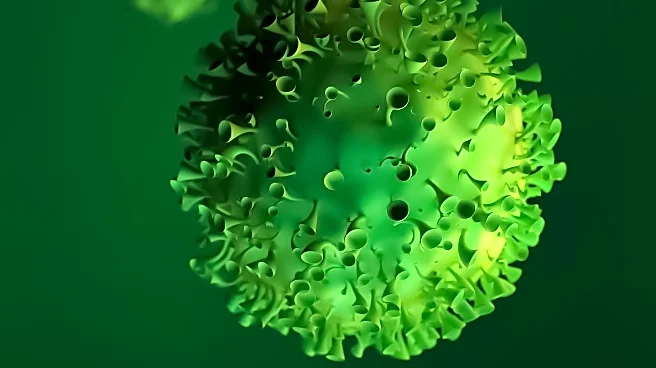What is the story about?
What's Happening?
Recent research has identified that the lactylation of the SARS-CoV-2 spike protein is crucial for the virus's ability to infect host cells. The study found that lactylation, a posttranslational modification, occurs on specific lysine residues of the spike protein, enhancing its binding affinity to the ACE2 receptor and facilitating membrane fusion. This modification is influenced by intracellular lactate levels, which can be manipulated through treatments with sodium lactate or inhibitors like 2-DG and oxamate. The findings suggest that lactylation plays a significant role in the infectivity of SARS-CoV-2, with potential implications for understanding viral replication and developing therapeutic strategies.
Why It's Important?
The discovery of lactylation's role in SARS-CoV-2 infectivity provides new insights into the virus's mechanisms of infection and potential targets for therapeutic intervention. By understanding how lactylation enhances the virus's ability to bind to host cells, researchers can explore new avenues for disrupting this process and reducing viral spread. This could lead to the development of novel treatments that specifically target the lactylation process, offering a new strategy in the fight against COVID-19 and its variants.
What's Next?
Further research is needed to explore the full implications of spike protein lactylation on SARS-CoV-2 infectivity and its potential as a therapeutic target. Studies may focus on developing inhibitors that can effectively reduce lactylation levels and assess their impact on viral replication and disease progression. Additionally, understanding the broader role of lactylation in other viral infections could open up new areas of study in virology and infectious disease treatment.















